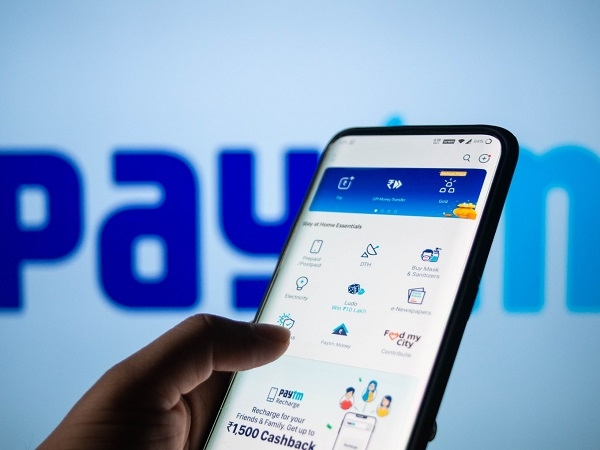India’s digital sovereignty in question again in Paytm Google episode
21 Sep 2020 12:20:28
Google removing Paytm from Google Play store last Friday demonstrates the current limits to sovereignty of India’s digital ecosystem and is another example of knee jerk or insensitive actions of mega digital corporations based on conclusions drawn by people with half baked knowledge at best and questionable intentions at worst to impact a dependent competitor. Fortunately, the mistake was realised and corrected in 7 hours.
Paytm is not an ordinary IT company. It has played a notable role in India’s digital journey in initial days and continues to be a major player. Paytm, Flipkart, Olx, Ola and others are remarkable testimonies to homegrown technology startup entrepreneurial turned large companies, inspirations to startups, job creators and wealth creators. Though Shein may have been reduced from Paytm in recent times with adverse spotlight because of 45%+ stake of Ant Financial of Alibaba and Softbank Vision Fund, both of Chinese origins but we cannot forget that getting such investments was considered an act of heroism just 2 years back.

Gaps in our policies over long time have led to some of our most celebrated startups becoming significantly or majorly owned by non-Indian companies like Flipkart by Walmart, Paytm by Alibaba and Softbank, Ola by Softbank, Tiger Capital and Tencent among many other examples. These have also led to slipped management control or remaining tenuos at best. We made an effort sometime back by introducing dual class shares and separate ownership from economic structure but it was a late effort and still left lot to be desired.
These are unprecedented times. Nation states have realised the impact and criticality of global internet and social media companies. They have also realised critical need to support national technology champion companies and also build safeguards from companies of adversary nations. Ironically, China the original practitioner of this philosophy over the years by disallowing or creating insurmountable hurdles in way of Google, Facebook, Amazon, Walmart and many others and reserving national markets for homegrown technology companies is now seeking a level playing field in India, United States and other jurisdictions.
China was able to create national champions with 2019 figures like Alibaba (market cap 428 billion US dollars), Tencent which owns WeChat ( 394 billion dollars ), Meituan Dianping ( 76 billion dollars and one of the global innovation leaders in 2019 ), Baidu Search engine ( 43 billion dollars ), Xiaomi, Huawei, Bytedance with Tiktok market value itself being 50 billion dollars among many others. It is a lesser known fact that Tencent apart from owning WeChat which is also under storm in United States, is also the biggest video game company in the world. It also owns US Game studio Riot Game, has substantial stake in Epic Games which is behind Fortnite game and is majority owner of Supercell which is behind Clash of Clans game.
China was able to get these large companies built by protecting and nurturing them with capital and market access before they could become giants and spread wings. By legislation enacted in 2017, all these companies are obligated to support China’s national strategic policy considerations from any of their global operations. Despite the Covid 19 setback, China has continued to have thriving ecosystem of startups with mega IPOs lined up and thrust to claim global AI leadership by 2030.
These reasons prompted the United States Government to force sale of Tiktok and beginning 20th September Tiktok and Wechat downloads are prohibited for Tiktok and Wechat in United States. Tiktok and Oracle deal has still not passed muster with the US administration. Around 30 countries in the world under The Clean Network initiative spearheaded by the United States government are taking steps to ensure safety of network and potential risks from companies originating from countries with adversarial jurisdictions which can be read as China.

India took steps to ban Tiktok and number of other Chinese apps whose activities posed security concerns including suspect data transfers. This strategic step may have been taken in backdrop of border skirmishes with China but must also be read together with active encouragement to identify homegrown Indian apps and IT companies under the Atmanirbhar Bharat campaign. There has been active and enthusiastic participation from number of startups and as per reliable sources, many of these companies, potential winners and the Government has been approached by large global venture capitalists to explore investment opportunity in these winning companies.
In this regard, Google’s action to bar Paytm from Google app store exposes our strategic weakness. It is very important that actions impacting Indian digital ecosystem are not taken from remote locations not subject to Indian jurisdiction and laws. Indian minds are anyway influenced by Facebooks and Instagrams of the world whose policies to regulate content is at best driven by commercial considerations and at worst by parochial mindsets whether in their Indian teams or back in US Headquarters. Google banning Paytm even for 7 hours has raised another sensitive policy issue and the Government of India needs to look at playstore policies of Google and Apple which have anyway puzzled mobile app builders since long or incentivize creation of India based app stores.
It is also very important that the Artificial Intelligence AI policy currently being drafted by Ministry of Electronics and IT contains actionable intent to enable large Indian owned AI companies to be built so that long term strategic intent to keep data and algorithm related intellectual property resides in companies with Indian ownership. We also need to be careful of arguments of many multinational companies with large Indian employee base to present themselves as Indian companies because the IP ownership eventually resides with these companies. These companies can be partners in progress but policy draft must include that intellectual property built by utilizing data of Indian citizens must have complete or meaningful ownership to be retained in India or kept enabled to drive long term benefits of Indian nation.
Such meaningful provisions need to be included in data privacy policies for individuals and commercial contexts, data intermediary policy, ecommerce policy among others. The Digital Communications Policy 2018 which needs to be brought on track for holistic implementation while containing highly ambitious goals and also Bharatnet project to reach 600000 Gram Panchayats in 1000 days as announced by the Prime Minister on 15th August need to be reviewed to be made be far more effective than what is seen on ground. It is critical to digital revolution in rural India. These are few important examples.
In nutshell, the technology policies of the government need to be looked with integrated lens and strategic intent. It is pertinent to look at with nationalistic perspective on strategic matters and necessary to realise that after having missed the number of buses of PC manufacturing, internet, ecommerce, large technology startups etc, India cannot afford to miss the data, AI and digital buses too and abdicate digital sovereignty over time which will amount to compromising our long term national security.